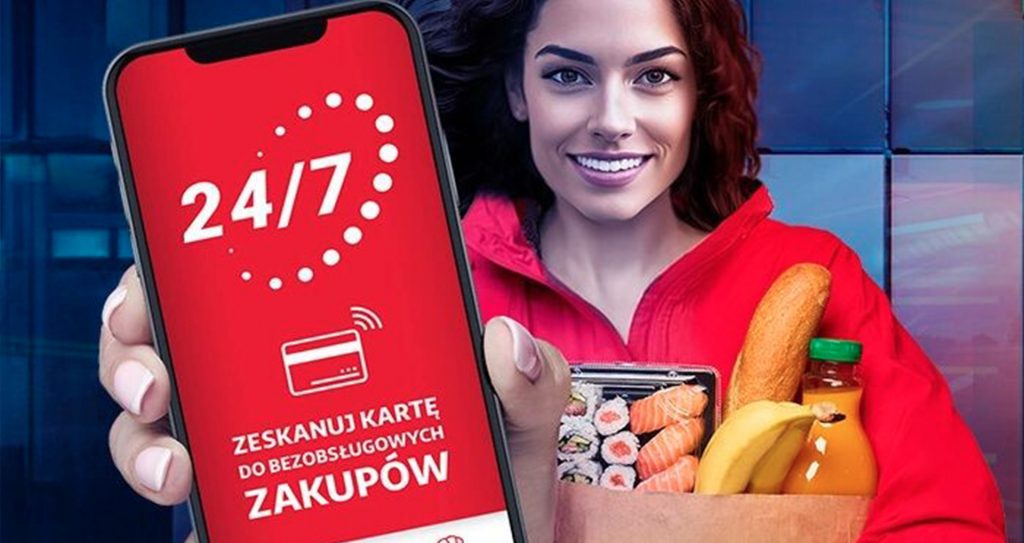Why Frictionless Check-Outs are the Tonic for Britain’s Ailing High-Street
Brick-and-mortar shopping may have suffered in recent years, but with disruptive, frictionless payment technology on the horizon, do we have the much-needed rejuvenation for our high streets in a post-lockdown era?
The rise of online shopping, which has been on a slow yet steady incline for over a decade, has long threatened the health and longevity of the UK high-street. Radical change arrived in early 2020, sparked by COVID-19. March 2020 saw a greater growth in online shopping than ever before – reaching a rate of 41%. By February 2021, this figure had burgeoned to 71%.
However, a 2021 survey by Retail Week revealed an increase in the number of shoppers who feel comfortable returning to stores and shopping centres now that the vaccination roll-out is underway and lockdown has come to an end: the increased popularity of online shopping has not discarded physical stores altogether, rather, their role in the retail ecosystem has evolved. For example, consumers have become more comfortable with purchasing their shopping via click-and-collect schemes over lockdown; Forrester research has suggested that 30-40% those who shop in this way buy additional items when they reach the physical store, leading to bigger baskets for the retailer without the cost of delivery. KPMG has also reported that shoppers are more likely to buy a product which they have seen in person, highlighting the need for a physical location to test these out. Moreover, research produced by the International Council of Shopping Centers demonstrates that a retailer’s online traffic to its website increases by 37% when a new store is opened in the previous quarter. The financial return of this online activity highlights the strong investment and profitability potential of brick-and-mortar stores: physical stores compliment and boost sales made by online stores. However, one aspect of shopping which remains inherently physical is a brand’s customer experience: innovative concepts, impeccable service or convenience can differentiate a retailer from its competitors and create a lasting impression on a consumer who may then buy online.
Trends emerging from the English capital have also impacted on the retail industry post-COVID 19. Central London has witnessed the largest exodus of Londoners, seeking the more spacious, cost-effective lifestyle of suburbia, than any other city center. The pandemic also showed many employers that it is possible to successfully work from home, leading them to reevaluate the need for commercial office space in one of the UK’s priciest real-estate areas. However, offices have not been abandoned altogether: the most recent WeWork flagship in Holborn has continued to see demand from professionals wanting a hybrid working lifestyle spread between their home and commercial offices. Central working hubs around corporate London will not disappear any time soon.
London may still be able to recover its pre-COVID footfall and spending – its low resident to business ratio will cripple many business, especially those operating in commuter and tourist hotspots. However, those businesses that adopt technologies have a greater chance of recovering. E-commerce retailers experienced a positive trend in sales, which rose by 48% to £113bn, with food and drink sales accounting for 41 pence of every pound spent on groceries.
What does this mean for grocery express stores, catering mostly to commuters, in the WC1 district?
Grocery-express consumers in Holborn are, by and large, commuters looking for a quick sandwich for lunch. Busy and in need of fast sustenance, these consumers value the reliability of quality and brand trustworthiness. For Tesco shoppers in particular, who, as recent market research suggests, display greater loyalty to the brand than customers of other popular UK supermarkets, this means that they will be drawn to Tesco stores in Holborn over other competitors in the area such as Amazon Fresh. However, speed of service is also crucial for these rat-racers and, interestingly, latest consumer research suggests that Tesco shoppers are less satisfied with their in-store experience.
Could this be resolved with an autonomous payment experience?
The Tesco Express in High Holborn already boasts a cashless facility, with self-checkout counters for shoppers on the run paying solely through contactless and card. However, this has not proven enough: with neighboring Amazon Fresh around the corner, most major retailers will need to keep up (and Tesco is no exception) – by adding a seamless, socially-distanced and frictionless checkout experience, grocery retailers are able to meet the demand and needs of hybrid-workers who will continue to commute a few times a week whilst keeping its operational costs lower.
The future of London brick-and-mortar stores will not be solely web-based; with commuters still expected to hit the city centre, physical stores and workers’ shopping will remain alive and well. However, retailers wanting to catch up and overtake in a post-pandemic world will have to open their eyes to the benefits that frictionless checkout technology brings to the overall customer experience and be quick on its uptake if they are to survive the challenging London market.











